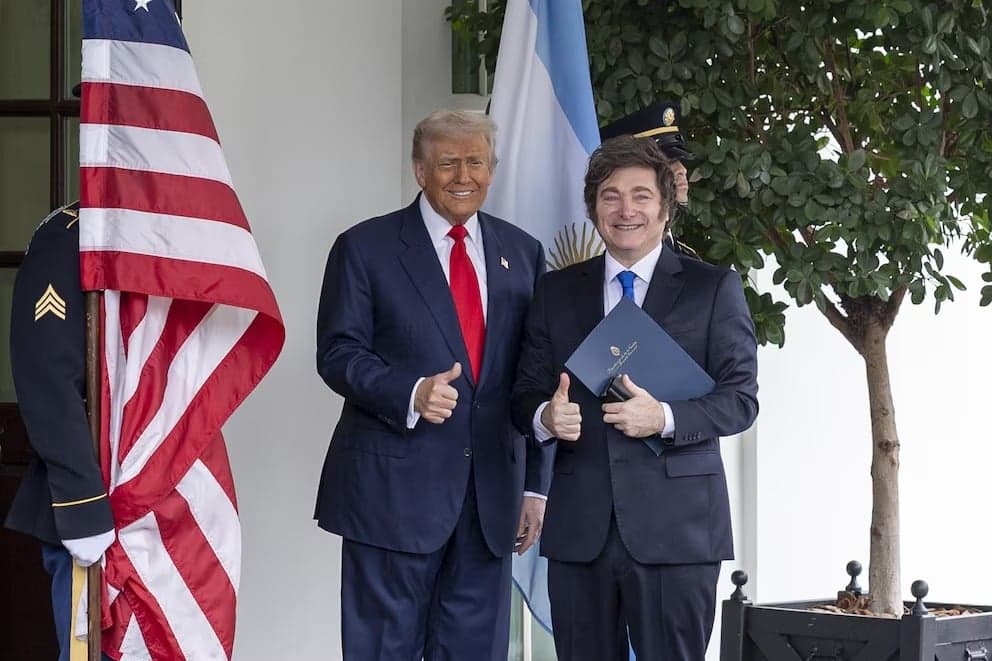Argentina and the United States announced a new trade and investment framework agreement aimed at transforming the landscape for Argentine exporters by eliminating tariffs and opening up markets further. The agreement focuses on three key sectors—beef, steel, and aluminum—and seeks to improve national competitiveness in the third most important destination for Argentine exports.
Although the final details have not yet been released, sources linked to the negotiations confirmed to Infobae that Javier Milei's government is prioritizing a substantial reduction in tariffs for these sectors. There is also anticipation in areas related to critical natural resources and non-patented products used in the pharmaceutical industry.
The statement issued by the White House outlined part of the agreement. It indicates that Argentina will grant preferential access to US exports such as pharmaceuticals, chemicals, machinery, medical equipment, vehicles, information technology, and a wide variety of agricultural products. In turn, Washington is expected to provide more favorable tariff treatment for Argentine goods.
One of the most sensitive issues is the treatment of steel and aluminum. The so-called Section 232 would allow Argentina to be granted an export quota without tariffs, which currently reach 50%. The idea is to replicate the scheme implemented in 2018 during the administrations of Mauricio Macri and Donald Trump, which established a limit of approximately 180,000 tons per year. Regarding beef, President Milei announced in Miami the full implementation of the 80,000-ton quota for the US market.
For Claudio Caprarulo, director of Analytica, key details still need to be defined. “Many unknown details need to be analyzed, such as how this agreement will be implemented within the Mercosur framework, where the automotive industry is a significant player and also a target sector in these negotiations with the United States. Furthermore, it is important to note the restrictions that Argentina would impose on imports from countries with forced labor,” he stated.
The announcement also comes amid a climate of political support from Donald Trump for the Milei administration. Reportedly, this support included a $20 billion currency swap—already activated—and direct purchases of pesos by the US Treasury to reduce exchange rate volatility before the midterm elections. After achieving a favorable result in those elections, the government accelerated its economic agenda.
Argentina's strategy focused on sectors that still face tariffs in the United States. In contrast, fuels, derivatives, and minerals—which represent almost half of its exports—are currently exempt from tariffs because they are considered strategic to the U.S. economy.
According to an Analytica report, the bilateral trade relationship has shown a persistent deficit for Argentina for the past decade. Between 2014 and 2023, the average deficit was USD 3.666 billion annually. The recession reduced imports and allowed this trend to reverse in 2024, when a surplus of USD 228 million was recorded, the first since 2005. Trade is significant: in the last ten years, Argentine exports to the United States averaged USD 5.7 billion, peaking at USD 6.464 billion in 2024.
Currently, domestic products pay a base tariff rate of 10% —the lowest level set during the Trump administration—, although steel and aluminum continue to be taxed at 50%.
In 2024, more than half of Argentina's exports to the US market consisted of fuels and derivatives (USD 2.284 billion), minerals (USD 762 million), and aluminum (USD 529 million). Regional products—wines, honey, citrus fruits, shrimp, tea, and timber—also played a significant role. That year, the United States absorbed 73.6% of Argentina's honey and 57.1% of its lemon exports. Meat, meanwhile, generated USD 200 million (3.1% of the total).
A tariff reduction would have an immediate impact on these sectors, considering that the United States is one of the world's largest markets, with 342 million inhabitants. In the case of aluminum, the effect would be particularly significant for Aluar, which accounts for more than 70% of the country's aluminum exports. The government has already reduced export taxes to 0% for steel and aluminum sales to countries that apply tariffs exceeding 45%.

